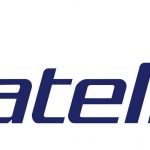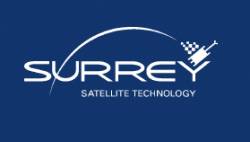Say what you want about the European capitol — one thing is for sure, Brussels is alive with conversation. With corporate high flyers and political decision makers tripping over one another on their way to long lunch breaks and after-dinner drinks, the chitchat can flow fast and furious.
If one is not careful, idle conversation can turn into rumor and rumor become a “buzz.”
Say what you want about the European capitol — one thing is for sure, Brussels is alive with conversation. With corporate high flyers and political decision makers tripping over one another on their way to long lunch breaks and after-dinner drinks, the chitchat can flow fast and furious.
If one is not careful, idle conversation can turn into rumor and rumor become a “buzz.”
Over their beer, chocolate, and waffles in recent weeks, people have been buzzing — among other things — about Europe’s satellite navigation program . . . such matters as technical problems with Galileo satellite production, a new GNSS regulation that will shift institutional roles, and the ever-popular subject of program budgets.
Satellite Software Issues?
Early in November, one media source (Space News) reported that the deployment of Europe’s Galileo satellite navigation constellation was “likely to be stalled until late next summer because of software issues on the new batch of satellites.” The publication attributed that assessment to officials involved with the program.
Space News said the purported delays are related to “harmonizing the software on the new satellites, made by a team led by OHB AG of Germany, with that on board the four Galileo validation satellites already in orbit, which were built by a consortium led by Astrium and Thales Alenia Space.”
But sources here in Brussels say there is nothing unusual about this kind of glitch — “This is to be expected, not a huge problem” — and the announced schedule, with the next launch set to take place in the first semester of 2013, is still a “go.”
Consensus opinion seems to be that software adjustments and corrections like those described are always necessary. When the first Galileo satellites went up and operators started initial testing, getting the software systems up and running, they encountered “lots of discrepancies” along the way. “It took quite some time to get all the bugs worked out,” according to one knowledgeable source.
Adjustments and corrections had to be made to software systems, both on satellites already in orbit and in the control systems on the ground.
As one expert explained to me, “These satellites are complex, and the computer programs that make them function are very advanced.” Just as when Apple or Microsoft launch their latest phones and pads and operating systems, any new and extremely sophisticated software system is going to discover bugs.
“These programs are so advanced that even the developers themselves cannot anticipate every possible outcome,” said one source. In addition to the satellite operators themselves, users and other observing agencies or institutes may report the problems, and a period of adjustment follows.
Right now, the problem is being compounded by the fact that a new contractor is involved, using its own methods, quite naturally, and according to a slightly different design than the in-orbit validation (IOV) generation built by the Astrium team.
Bremen-based OHB has contracted with the European Commission to build a total of 20 Galileo satellites. Most of them will be placed into orbit by a specially modified Russian Soyuz launcher.
“Even if all the software interfaces are well designed, all according to specifications, there will still be problems.” Our sources affirm, with confidence, that all the necessary adjustments will be made, any problems will be fixed, and the new satellites will be launched on schedule.
In Brussels, of course, one understands that what you hear is not always what you get. No one should ever feel too at ease pooh-poohing a reported delay in the Galileo program, and we certainly do not. We’ve been here before.
Beyond the software-related bumps in the road and other problems around actually building the satellites, the Galileo program admits it expects to face some basic logistical challenges associated with the next set of launches. Working with a new manufacturer is going to mean different shipping and delivery arrangements, for example. “There are always new challenges associated with a new satellite that have nothing to do with the actual satellite,” a close observer of the program points out.
European Commission officials have consistently said that the specific dates of Galileo satellite launches are not important. What is important is having 18 satellites in orbit and operational by the end of 2014, when initial services are set to get underway.
For its part, the European GNSS Agency (GSA) has no official comment on the reported software issue. As for the perspective of European Commission (EC) officials, my calls about the subject went unreturned.
To be fair, neither the GSA nor the EC is the right body to speak to about Galileo technical issues today, as you will understand when you read on.
GNSS Regulation Outlines Roles
The EC is finalizing a new “communication” on Galileo and EGNOS. The so-called “EU GNSS Regulation” outlines the way forward for European Union (EU) GNSS programs, and that means getting the relevant European agencies and institutions to work together in a new and better-coordinated way.
For many years, the core of the problem was EU-ESA relations, as in interrelations, as in interpersonal relations. No joke — this reporter can remember a time not so long ago when handlers had to physically push a certain ESA director and a certain European commissioner together in order to get them to shake hands.
Happily, the climate has warmed considerably in the intervening years, with all sides now declaiming common interests, and the wisdom of moving forward quickly on the integration of all European space activities. Indeed, the EU’s Lisbon Treaty calls specifically for a final solution to this problem, and that really does mean something.
So who will do what? The EU GNSS Regulation identifies the roles and responsibilities of the European GNSS Agency, the European Space Agency and the European Commission:
- The GSA will be responsible for tasks related to the Galileo and EGNOS exploitation phase, including program management and marketing of services. The implementation of security procedures will also be part of its remit.
- ESA will be responsible for tasks related to the design and procurement of the Galileo system during the deployment phase. In addition, it will cooperate with the GSA in the exploitation of the Galileo and EGNOS programs, particularly in matters of technical support and future technical development.
- The EC will bear overall responsibility, managing funds, organizing the delegation of tasks, monitoring the implementation of programs, and ensuring their security.
Sources say that some lack of clarity still exists on the question of R&D activities. Some EU-funded projects are more technical and systems-related, which would tend to argue for ESA control, while others are more applications- or services-related, better overseen by the GSA. A simple assignment of research projects either to the GSA or ESA based on their content might be the easiest solution, but this could still be a source of minor contention.
The GSA, ESA, and the EC are expected to be fully invested in their roles by 2016. The substantial change, compared to what they are doing today, and the main challenge for all will be the handing over of operational control from ESA to the GSA.
The GNSS Regulation will have to be approved by the EU Parliament and the EU Council before it can enter into force. Pretty much everyone now believes that it will be approved in its present form.
Some sources believe final approval is being held up until after the ESA ministerial conference, coming up in December in Naples. This is the meeting that brings together all the government ministers responsible for space matters from all the ESA member states. It takes place only once every four years, the aim being to lay out the Agency’s long-term goals and activities.
If all goes according to plan, ESA ministers will sign off on the proposed assignment of Galileo responsibilities, as outlined in the draft EU GNSS Regulation, and the whole thing will be sealed with a round of drinks.
Galileo Plan for Launching Services
Meanwhile, initial Galileo services are set for launch in 2014. Sources close to the program say the important thing here is to demonstrate that Galileo is real, and while that may seem like a rather modest goal to some, one has to remember the long and uncertain trail this program has traveled. Simply getting a usable signal transmitted will feel like an enormous milestone for the people who’ve been living and dying the Galileo dream for more than 20 years.
Things to watch for in 2014 include the free-of-charge Galileo Open Service. In fact, insiders say that as soon as four functional satellites are up and transmitting and Galileo is able to achieve 3D positioning — in the first part of next year — the program is going to throw a huge continent-wide party, with technical illustrations, of course, to mark the occasion.
The objective is to deliver at least a demonstration version of all the Galileo services in 2014. Thus, a demo of the secure, encrypted Galileo signal, the Public Regulated Service (PRS), will be launched, allowing developers to check it out and start thinking about new receiver designs. Demo versions of the Galileo Search And Rescue Service, Europe’s contribution to COSPAS-SARSAT, and an encrypted Commercial Service will also appear.
Notice those dates again: 2016 for the handover of operational control from ESA to the GSA; 2014 for the launch of initial services; so, ESA will still be at least partly in control when initial services begin. Word has it that we are likely to see some kind of shared control arrangement in place in 2014.
Show Us All the Money
The European Council has already agreed on a “partial general approach” to a new financial and governance framework for EGNOS and Galileo, for the period covered by the EU’s 2014–2020 Multi-annual Financial Framework (MFF). This is the new terminology for the seven-year budget cycle under which Europe’s GNSS programs are financed.
The exact amount of funding to be made available by the EU is left out of the partial general approach, as that will depend on the outcome of discussions on the multi-annual financial framework. According to current projections, resources needed for Galileo for the 2014-2020 period are estimated at around €7.9 billion (US$10 billion).
Key EU budget talks are now set to take place in late November.
So far, so good.
Enter British Prime Minister David Cameron, with his take on the new EU budget: “They are proposing a completely ludicrous €100 billion increase. I’ll be arguing for a very tough outcome,” he said in a Reuters article recently.
Cameron was speaking just as he was about to meet with Germany’s Angela Merkel in London to try to iron out their differences before the real budget talks began. He had already threatened to veto any deal he thinks is not in Britain’s interests. Meanwhile, the British parliament voted in November to call for a real-terms cut in the EU budget.
Given Galileo’s long history of delays, backtracks, and budget overruns, Cameron’s “completely ludicrous” comments made shivers run down more than one spine in Brussels.
Just where does Galileo stand on Mr. Cameron’s hit list? Could European GNSS be on the chopping block?
One official close to the program says, “Not so — there is no trepidation about the Galileo budget.” For all concerned, it would seem, a very strong sense of confidence exists regarding the commitment of the powers-that-be to the Galileo program. It’s as if there were a big black box drawn around the Galileo section in the EU budget, and no one is allowed to touch it. “It’s virtually guaranteed,” this official said.
Barring unforeseen events (“If the whole EU were to suddenly go bankrupt tomorrow, well then we might have to ask the question”), the only possible snag could come if the wider budget talks drag on for too long. This could conceivably — stretching the imagination — delay some Galileo activities. But if and when the talks do conclude, Galileo’s needs are certain to be covered.
So, while David Cameron may not be happy about the overall EU budget, no one seems to believe he or anyone else in Britain is going to raise a fuss about the EU GNSS programs.
Proof of British commitment to Galileo?
For one, the UK fought hard to get one of two Galileo Security Monitoring Centers (GSMCs) established on British soil. Operated by the GSA, the GSMCs will be the hub of European GNSS security, ensuring that sensitive information relating to the use of PRS is suitably managed and protected, and allowing continuous monitoring of the security status and performance of EGNOS and Galileo.
The “master” GSMC will be based in Saint Germain en Laye, in France, while the equally important backup GSMC will be in Swanwick, in the south of England.
Some are suggesting that Cameron’s remarks were aimed more at appeasing his own Eurosceptic back-benchers than at signaling any real intention to scupper the EU budget. In any case, the general feeling among Galileo connoisseurs is that the UK is in for the long haul.
“Just like many governments around the world, the UK sees this [Galileo] as an opportunity,” said one observer.
The EU is certainly doing what it can to push for more market share in the global GNSS sector. Organizers of the upcoming “European Space Solutions” conference, set to take place in London the first week in December, say that’s their ultimate goal.
The event is fully booked, interestingly enough, with a full slate of participants from the UK, including researchers, businesspeople, all manner of gadget mongers, and government representatives.
Some “foreigners” have gone so far as to complain that the British are “virtually monopolizing” the ostensibly international event. The Galileo program says let them in — the UK is always a valued partner in any EU initiative, if only because it means they are then less likely to try to wreck the show.
For now, Galileo looks like one EU party that David Cameron is not going to pull the plug on.






